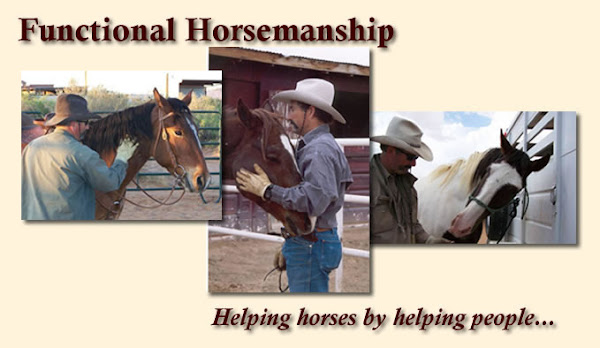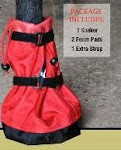The quick answer is 'sometimes'. Melanie wrote to ask about her horse anticipating. "Hello, I read your article about the horse anticipating turning at the fence. What I got out of it was to mix things up so the horse does not know when you will ask her to turn and that is keeping her acutely listening to you. My mare does something different where we try to open a gate and she wants to push through it. One time I fumbled the latch and she thought the gate was opening and pushed my leg into the gate. When I am riding her she is fine but going through the gate she is a mess anticipating. She sometimes anticipates other things like taking her halter off and tries to pull her head away thinking the halter is unbuckled. When I correct her she is good but I just don't know what to make out it and wondering what you think of this."
I think we're all tying to accomplish the same thing, getting our horse's responding to cues and not what they think is going to happen nor want to happen. The term 'anticipation' may not be the best term, but we can all understand it. Sometimes a horse may prepare to turn or actually turn before you ask as it gets anxious, such as riding toward a obstacle like a fence. But I am leaning towards the view that true anticipation may be rarer than a horse just being anxious.
I would lead the horse, in hand, through the gate until it walks calmly through. Then I would send the horse through the gate until it does so at a calm walk. I would hesitate after opening the gate, for varying periods of time - maybe 5 seconds to 15 seconds - before asking either. You could also walk up to the gate open it, wait on the horse to just be calm, feet not moving - maybe rub her - then close the gate and go someplace else.
Another note on sending horses through a gate - I like to have the horse go through the gate then disengage his back end away from me so he ends up facing me. It's easier to get him good at this without the gate, so that when he does go through a gate and feels the lead rope he'll his rear end away to face you. In the beginning you'll likely have to tip his head to you, so its easier for him to disengage his back end. But given the chance horse's will respond to a lighter feel on the lead rope and soon you can send him and bend him with a loose lead rope.
On horseback I would continue the same thing. When you open the gate tip her head the other way - away from the gate - slightly, and get her to stand content (see photo above). You could close the gate ride away and do it all over again. Then you could do it with her head tipped towards the open gate (see photo below), but she only moves through the gate when you cue her and then at a calm walk. She will likely move at a fast walk or otherwise show some nervousness, so be prepared to do this again several times. This is well worth the time as going through the gate can be dangerous - my left knee will attest to that.
One time I was in a ranching sorting competition and this young man had a horse who refused to go through the gate. A couple guys on the ground crew used a lariat across the butt of the horse to get him to move into the sorting pen. That didn't do the horse, nor rider any good. The horse remained nervous and it didn't help that the cattle were sour Corrientes pushing on him. When the young man came out of the pen, I worked with him and his horse sending him in a circle while getting closer and closer to a panel fence, then I sent it back and forth between me and the fence, and fairly soon the horse was moving between me and the fence with just enough room to get by. On his next turn in the sorting pens, the rider was ale to ride his horse through the gate without much problem. On some occasions, if I am leading a horse to and through a gate and they turns sideways and balk, I'll do what I just described and its seems to make them better at being close to fences and going through gates.
As for putting the halter and and off. I have seen too many horses bolt as soon as that halter is loose. I have also seen a woman get pulled off her feet and drug a short ways after getting her hand stuck in the halter and the horse thought he was free. I ask my horses to get soft - get their nose vertical to the ground, so the halter nose band just falls off. And it's not a bad idea to get the horse's nose tipped just a bit towards you. That is what I would do on a horse who doesn't yet have good manners. But asking the horse to get soft when un-haltering is not just an exercise in getting the horse to drop his head then pulling it back up. You would want the horse to stay soft and not put pressure on the halter as it falls off his nose. You arm and hand are likely still over the horse's neck as the halter nose band falls off - good time to give the horse a short rub, then walk away.














